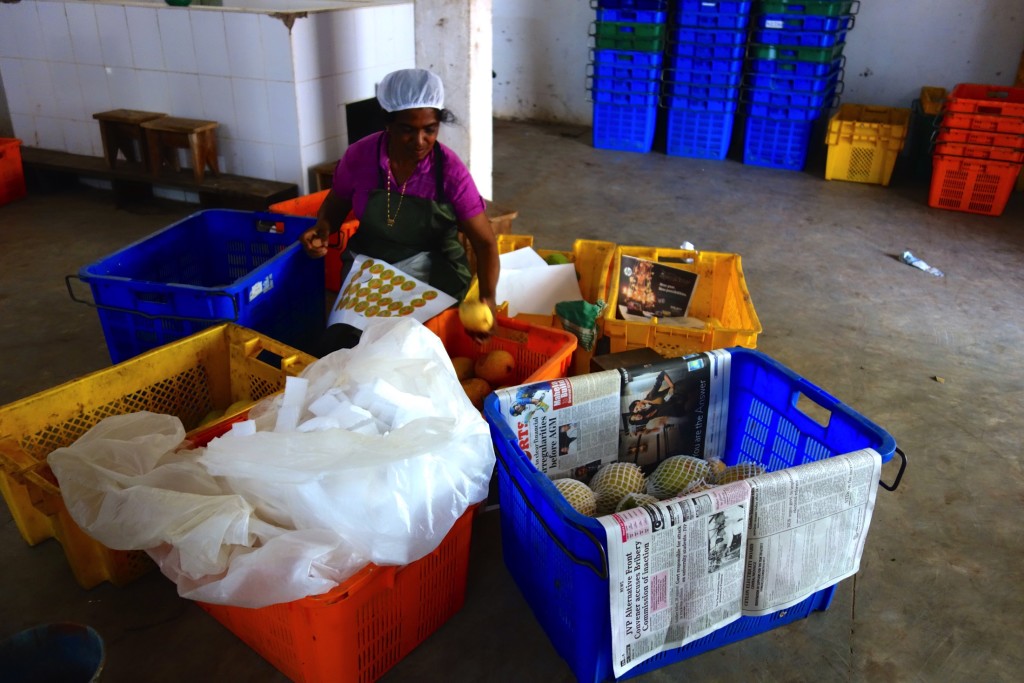Researchers and academics are skeptical of Big Ag. Here’s why that’s a problem for food security.
The private sector has gained pre-eminence in driving forward global food security. Countries like China, India, and Brazil have catapulted hundreds of millions out of poverty by integrating market-based incentives in the food value chain.
Yet increasing food production is just one pillar of food security. Private food and agricultural companies have profited enormously from the increased production of affordable food. Most economists would argue that everyone, in fact, has profited from the availability of more affordable food. A country that has less hunger is more productive, and everyone is overall better off.
But the growth of the agriculture and food industry depends on a market structure that is incentivized by production. This has worked well for poverty, in general; poor people can now afford cheaper foods thanks to improved supply chains. But consumers and producers are not independent from another, and every single node along the food supply chain involves a co-creation of consumption and production.
The world now enjoys more food than it can eat. Yet the world is not eating better: it’s merely eating more. We can see this with the spike in overweight and obesity rates rising concurrently with vitamin and mineral deficiencies. Corinna Hawkes critiqued how the industrial food system has become disaggregated; that expecting one single entity—business, government, or academic— that understands the food system in its entirety is impractical.
While the private sector can provide the world with innovative ways to improve the efficiency of our food and agricultural system, is it critical for public institutions to provide the insights needed to improve the system as a whole. By focusing solely on production, overconsumption of resources and sustainability problems can run rampant. Yet a wider systems approach can cause stagnation and gridlock to innovation.
Science-business-government cooperation is challenging. Often, food system issues come down to binary debates: organic or not, local or imported, small or big farms? Clearly, a diversity of production styles, farms, and policies are needed. But in academic conversations surrounding food security, the role of business, the influence of Big Ag on our food systems, and the potential opportunities for innovative market-based approaches to production and distribution remain at the edges of our conversations on food security.
Public research and the food industry do not exist in silos. Public-private partnerships – projects in which public institutions such as government entities, and private companies, enter into joint ventures – are critical to the success of global food security.
Academic research is needed for evidence-based policies and system change. Researchers can play a role, particularly in linking evidence to practical interventions. A sense of wariness may exist about the role and the interests of the private sector in research and science may also influence researchers to avoid engaging with private sector, but ideas around conditions for global food and nutrition insecurity takes more than just agribusiness development. It requires a hard look at the costs of the why, how, and what, that we consume.

It is telling that topics covering public-private partnerships were few and far between at the recent 2nd International Conference on Global Food Security. There was plenty of discussion tucked into various themes: for example, debates on biotechnology where Jennifer Thomson charged that wealthy countries should not make decisions for poor countries around the use of GM crops; or Corinna Hawkes’ presentation of a food system that exacerbates inequalities while not producing food that meets our nutrition needs. IFPRI’s Sheggan Fan argued that depending on constraints and economic context, smallholders should ‘move up’ in profitability or ‘move out’ of agriculture. And changes in donor countries’ aid landscapes mean new opportunities for private sector involvement. These are all politically charged conversations, and we have very few popular examples of partnerships that are a win-win and favorable publicly.
But it is for this very reason that we need to have more robust conversations around the role public researchers can and should have in improving our food supply.

